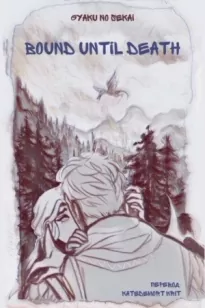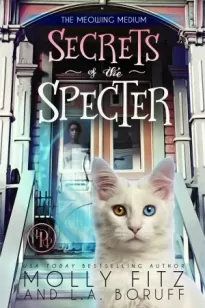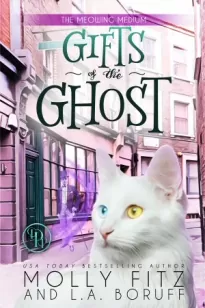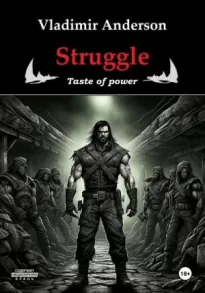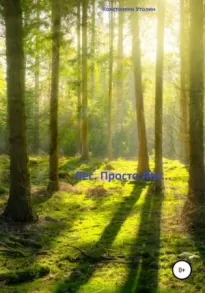Struggle. Prisoners of Darkness
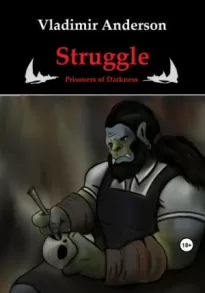
- Автор: Владимир Андерсон
- Жанр: Боевая фантастика / Боевик / Героическая фантастика
- Дата выхода: 2023
Читать книгу "Struggle. Prisoners of Darkness"
When there's nothing else
The darkened tunnel opened up into a wide cavern. Two kilometers from mine No. 3 to mine No. 4 of the Donetsk- Makeyevka sector, there was an explosion. Nobody had not yet managed to establish what it was from: from maqui or from methane, but the tracks had to be restored. For this purpose we sent the commander of the 381st (381/256th) soma Gavriil Zhelezhnov with a part of his group and ten chums from the 9th drill of the SCK.
The cave, through which the road passed, was almost unique in this region of the Empire: about 15 meters high and with an area of 12000 square meters. No one really knew when it appeared, but since the plagues attributed its existence to them — supposedly they wanted to make a beautiful landscape here, the cave was named after them: "Plague Cave." Some people jokingly said that the plagues, before they attacked, sat right here.
The rails ran from west to east. To the south of them, that is, to the right of the movement, there was a rather high hill (about twelve meters high), almost up to the ceiling. Near the end of the cave, but to the north, that is, to the left, there was another hump, but smaller (about two meters high).
The explosion happened roughly in the center of the cave and right at the intersection of the tops of the hillsides with the road. A total of four rails were missing — two on each side.
Half of the chum immediately jumped out of the mini-train and ran to survey the surroundings. There was no one around, and they closed the passages out of the cave, two on each side. The other six plagues dragged the miners out of the wagon and began yelling incomprehensible things in their plague language. None of them knew Russian or any human language, but it was not necessary. It was clear enough that they needed to fix the road.
Gabriel waved to his men to follow him and moved toward the crater in the middle of the road. There was no need to wonder why something had exploded here. The rails splintered quite evenly and, most importantly, at the same distance both to the right and to the left, that is, the explosion had occurred right between the rails, and even where they were interlocked with each other.
There was a lot of work to be done: first of all, a one and a half meter deep sinkhole had to be filled. It is not known where to get the material from — there are only spare rails.
Gora ordered the sides to be dug and the center side to be dumped. The commander of the 9th Boer stood next to him, Yognhr. He was watching very carefully who was telling the men what to do.
No one dossiers on people were compiled by the chums, not even on those who worked directly for them in the SCS. The plagues considered it unworthy of themselves to make up any forms and lists of people. They thought that it was normal to work without it. And the fact that in case of need to take information even on the commander of the soma is nowhere in the head occurred only at such times. The only lists about people existed only for record keeping: the catfish and the numbers belonging to it.
Now Jögnhir stood looking at this man, who even for a plague was imposing, broad-shouldered, with a commanding, firm voice, with the ability to see not only the question but also its decisive answer, and did not know whether he was a danger. Chum broke incessantly in his own hesitation: either this man was endeavoring to do the work out of a sense of submission, or he was doing it with thoughts of imminent rebellion. But in either case it appeared that this man was strong. And therefore dangerous.
Now, as always, Yognhra had extraordinary powers. After all, he is the commander of the SFC Boer. And he posed this question to himself, "Should we execute this strong man just in case?" The decision depended on one thing: "In case he revolts… If not, it will be possible to advise him to be promoted higher up. There he will also serve faithfully, and he, Yognhra, will also be promoted for his good advice… And if yes, he will have to suppress the rebellion, and then, perhaps, receive something like a reprimand for 'not looking out'…" This was a question the SSchekist decided to answer to himself at the end of his work in this cave.
Gabriel felt that something wrong was going to happen today. He was not even so much concerned about the explosion or the disappearance of the machine gun from the hiding place. Raphael had gone somewhere, and he smelled him here. It looked like nothing special, but there was something that was him.
Gora looked back toward the tunnel they had come out of — two chums were talking about something so passionately that one would have thought they were the ones being guarded here, not the other way around.
"And these are our enemies. — Gabriel thought. — An elite drill, and they can't stand guard as they should. And in general… Maybe it's their custom to stand on guard ? Who did we lose to?"
It was quiet, calm and even peaceful all around.
The commander looked under his feet — the ground. He had been walking on this ground for fifty-three years. It is hard and firm, not like the surface. And flowers and grass don't grow on it. Nothing grows on it at all. Some might say it's dead, but it's not. It nourishes the earth above it, gives it its power, its essence, its life. And beneath it, there is another earth, even harder and more resilient. And it seems even more dead. And it is even more alive. And the one farther to the center of the Earth. And the best is the one that's closer, the one right next to the magma. These red-hot metals move next to it and give it its own piece of the sun. And it shines from within, and it feeds from there. And the Earth lives as a piece of the Sun, endlessly nourished by it. And that's life, and it's all around us.
Gabriel bent down and picked up a handful of earth-so loose and dry, and in some places wet. His fingers gently kneaded it in his palm, then shook it off. Individual pieces remained near the lines of the hand. "How interesting? — Gora thought. — Next to the lines, but nowhere near them…" The commander felt that he was about to get to the truth, that it was quite close. It's a strange feeling when you don't know what you're looking for, but you feel somewhere inside yourself that it's close.
Yognhir looked at the man rubbing earth on his hands and was strangely afraid of something. There was nothing unusual about the action-the miners always poured handfuls of earth from hand to hand before work-but this time it looked different. Chum didn't know how to react to it yet — he just stood there and watched.
Just then the miner looked up and looked away.
Fear, unfathomable fear gripped Yognhir — that strong, willful look he saw.
There was no submission in them, no humility, nothing else but power. The pupils moved slowly and literally possessed everything they came across.
Chum turned away and cradled the gun usually held imperiously in his hands, "No…! Just don't let those eyes look at me! That's a scary man."
And then Jögnhir felt a ruthless gaze on him, on the back of his head. He wanted to turn around and shoot Gabriel, but nothing obeyed him. Fear was overwhelming him. And the more he stood still, the more he wanted to kill this man. And the more he couldn't. The green clawed paws shook: the gun flew out and hit the ground silently.
Gabriel rose from the ground and felt something familiar to the core of his being. A soft breeze blew and it was as if everything around him had stopped.
Gora rolled his eyes toward the tunnel from which they had come-the two chums were sitting on the ground with their backs to the cave and huddled together. They did not move or speak of anything.
"Are they dead?" — the commander asked himself.
The answer seemed obvious, but that moment froze — time, as is inherent in it in this case began not to flow, but to drip.
Somewhere very close by, there was a smell of hatred and love at the same time. It was an incomprehensible mixture. There were two elements, but it was not clear in what relation to each other.
Feelings were reeling from that high knoll fifteen meters south of the road.
Gabriel turned his head — a strong odor of goodness, it was clear now that the feeling was dominated by love. It directly illuminates everything around it. Everything is brighter, and it becomes warm somewhere inside, where the thinnest threads breathe.
And the other part of the world hates someone, wants to kill someone. The other part of the world hates someone, and wants to kill someone.
Some force was preparing to show itself. Gabriel felt: the whole hillside was about to rise to its feet and start trampling on the guilty…
But nothing happened. Nothing at all. Nothing moved.
"What's taking all this so long?" — Gora thought and turned toward the miners raking the pit. It didn't occur to the commander that he had been looking at that hillside for only ten seconds.
The miners were shouting something to each other. Gabriel couldn't understand why he couldn't hear anything. His hearing was gone, and his vision swam away in blurs of light.
Bullets pierced the two chums standing by the pit — the shooting hadn't just started, it had been going on for several moments.
Unable to hear himself, Gabriel shouted for everyone to get on the ground and made this one himself leap forward.
Someone was yelling, someone was running, someone was shooting back, but no one could figure out what was going on.
The commander looked around: in front, near the crater, there were already five dead chums lying in front, two long-sitting at the entrance, a Yognhr lying on the ground, and two still alive hiding in the ditch behind.
Suddenly the firing from the hillside ceased; another rather incomprehensible and disturbing sound followed. Metal against metal. Scraping and clanging.
The plagues whirled their heads and whispered about something. There was a quick shuffle from behind the hillside, even a "twitching" of metal against each other.
The Scekists rushed from their hiding place to the exit, taking turns firing back. They were overtaken by the same powerful blow from behind the hillside. The fight was over.
The commander rose to his feet and looked toward the crater where his subordinates were still hiding. There was a lot of blood there, both red and dark burgundy. The latter was dripping from the edges into the pit. The plagues of the SCF, torn by bullets, looked up with greedy and shocked eyes.
But that smell! Gabriel turned toward the hillside and moved quickly but cautiously forward. That native odor! As he climbed a little higher, his hearing picked up someone's steady and calm breathing. It was familiar, too.
Gabriel rushed forward, to the very top. Rocks and dust, dirt, air — everything flew away. Something dear up there.
My feet were going down, backwards, but no. Forward… Forward, up there! Up there!
Raphael…
The commander's son. Rock. Raphael lay on the ground, breathing evenly and not moving.
Gavriil ran up and turned his son onto his back. A machine gun lay beside him: a ribbon of cartridges twisted into a box magazine, and smoke poured out of the muzzle.
Calm and peaceful gray eyes. Still as glassy and impenetrable. Same white skin. The same son of Earth. Blood flowed from the left corner of his lips, and his eyelids blinked occasionally.
Through the silence, my heart beat strongly and vividly. So bright and fast that I wanted to live. "Raphael," Horus whispered to his son.
Pupils, slightly dilated, moved to the side and looked at Dad.
"Death in battle is the highest honor," Raphael replied in a quiet fading voice.
And as if an arrow had pierced Gabriel. After all, it was he, it was he who instructed like that. He was the one who honored the values of the ancient Slavs as his own. He raised his child that way… And now his son has a broken spine and God knows what else. Now his son is dying.
"Why! — cried out in his mind as Gabriel looked at his son.
"My wife…" said Raphael. — she is about to give birth… She should give birth to a healthy baby." "She's going to have a healthy baby. Why did you get involved in all this?"
"I brought you something to eat," Raphael replied out of the last of his strength and threw his arm to the side, pointing to the brown bag.
His hand plopped to the ground, kicking away a handful of grains of sand. They scattered haphazardly to the sides, raising a bit of dust. The dark cloud flew through the light rays emitted by the rebel's light heart. The heart was no longer beating, but the rays kept coming. And there was no end to them.
A twelve-meter high hill of rocks and clay soil. There is a machine gun on a biped, a sack with food next to it. It was dark all around, but here it was light. The rays were coming up. And gray eyes and white skin reflected on them. In this beautiful place Raphael found his death.
His father's heavy arms encircled his head and pressed it to his chest. Some invisible but very sharp arrow stabbed the commander in the heart, an arrow smeared with poison, a rotting arrow. Everything in the middle of his chest clenched and hardened into stone. His throat constricted, and it was hard to breathe.
Gabriel stroked his son's head. The glowing blond hair continued to glow instead of his heart. He tried to breathe harder and harder. And it worked. The air went through his neck, pushing something stuck, and straight into his lungs. The arrow flew out of his heart. Only what had turned to stone in the middle of his chest remained unchanged, remained stone.
The commander laid his son on the ground, stroked his head once more, and walked firmly back to the ones that had survived the firefight.
When Gora came down from the hillside, he saw only six of the nineteen miners; the others had been killed by the plague. Two of the six were very nervous and could not control themselves: Fyodor Ptitsev and Kirill Stolov.
Gabriel took them with him so they wouldn't upset the workers at the mine.
"What shall we do? Gora, we'll all be killed," Fyodor panicked throughout the railroad. His dim green eyes never told the truth, only showed fear.
Stolov's second alarmist was only nodding so far.
But there was support. The very one on which the commander could always count on. Elena Bagrationova. Her concentration and desire to help people found the right understanding from above. Gora took her on field work, so that the guys would hold themselves with dignity and, which is not unimportant, not swear. When they started yelling at everything that was going on around them, it turned out to be an unpleasant and incomprehensible collection of words that always interfered with the work. And with a pleasant twenty-year-old girl this did not happen. Everyone just worked mutually.
"Come on guys," she said good-naturedly, almost asking for it.
The words weren't said strongly, but they were said strongly. Strong in the soul. The very moment when visible weakness turns out to be invisible strength. It calmed Stolov, but not Ptitsev: "What the hell! What the hell happened?!"
"Silence," Gabriel struck a word above the ceiling and continued just as stiffly: "Before, everyone obeyed me as a loving father, a good commander… And I drove someone0to a state of opposition. Now someone is panicking and raising their voice to the commander. Now someone let them speak up to the commander."
That being said, it didn't confuse Ptitsev, he still stood stubbornly, dispelling the panic.
Gabriel had already realized what he would have to do, so he continued: "This is not the way it's going to go. Now it will only go the way I say it will. Now I am not your father or a good commander. Now I am your dictator. "Now you will listen to me without reservations or reservations. And you will do as I say. And if you disobey, you will die."
The phrase ended, providing an opportunity for deliberation — the five miners leaned their right fist against their left shoulder and bowed their heads, fear and respect. The sixth turned away.
"And for disobedience, death," Gabriel repeated, stepping forward. He didn't feel sorry for anyone, he'd forgotten what it was like, everything was red in his eyes and pure and cynical in his mind, all because of the hardened stone in the center of his chest.
"You know what! — Perplexed exclaimed Ptitsev, unaware that Control was behind him a meter away. — I'm Nadoe…"
He didn't have time to speak, a powerful fist flew into his spinal cord — Ptitsev fell to his knees, then all the way to the ground.
The bulky figure came closer and crouched down. Hands, like two iron mountains grabbed the shoulders of the lying man and, lifting him up, threw him aside — the barely breathing Ptitsev rolled over on his back. His eyes were buried: they realized what was going to happen and did not want to see it.
The four miners stood without moving: only Lena covered her mouth with her hands in horror and whispered quietly, "God."
Control walked over to the man and bent down to squeeze his neck with his iron hand. He grunted and twitched, trying to get away. His eyes opened and begged for mercy.
Her fingers clenched even tighter, her nails dug into her skin, and blood spurted out. Lena cried out and clamped her hands over her mouth even more tightly.
"I'm obeying. I was wrong. I surrender," his eyes pleaded with the last of his strength.
On the surface everything looked the same, but inside Gabriel tried to understand himself, "He's given up. He really won't anymore. Why kill him for a few words. He's still young and unformed as a person. He's just confused. Maybe he doesn't deserve to die."
"No!" shouted the dictatorial stone in his chest. — He disobeyed. For disobedience, death! And kill him cynically and brutally. He is a danger to our war. He will delay our victory. There is no mercy in war! In war, death for insubordination!" Then Gabriel was completely petrified — all his muscles became rods, his flesh became stone, his skin became earth.
A glassy stare and a mute face. His hand continued to clutch his already blue neck — the life was leaving Ptitsev. "Please," the fading eyes whispered.
There were no thoughts in his head or anywhere else in his control — only purpose dwelt within.
Gabriel rose to his feet. Blood dripped from his hand, and his palm smelled of death. On the ground at his feet lay the executed man. No one else panicked; Lena squatted down and covered her nose and mouth with her hands, staring at the handful of clay sand beside her.
"Stas," the Dictator commanded.
Vladimirov looked up without taking his hand off his shoulder.
"There you see the hillside… There lies Raphael…" — Gabriel was afraid to say "my son" lest he cry; he wasn't sure he could contain himself, so he didn't risk it, "Carry him here, and put Ptitsev in his place… Nikolai. Help him."
No one had realized yet which "Rafail" they were talking about. Although only one miner in all of Donetsk- Makeevka had such a name, it had never occurred to anyone that he was the one in question. How could the commander's face remain as calm as before. Until no one realized that there was no commander anymore, there was a dictator.
Gabriel walked over to Lena and squatted down as well, "What are you thinking about?" "Why did you do that?" — Without lifting her gaze and sighing heavily, she asked.
